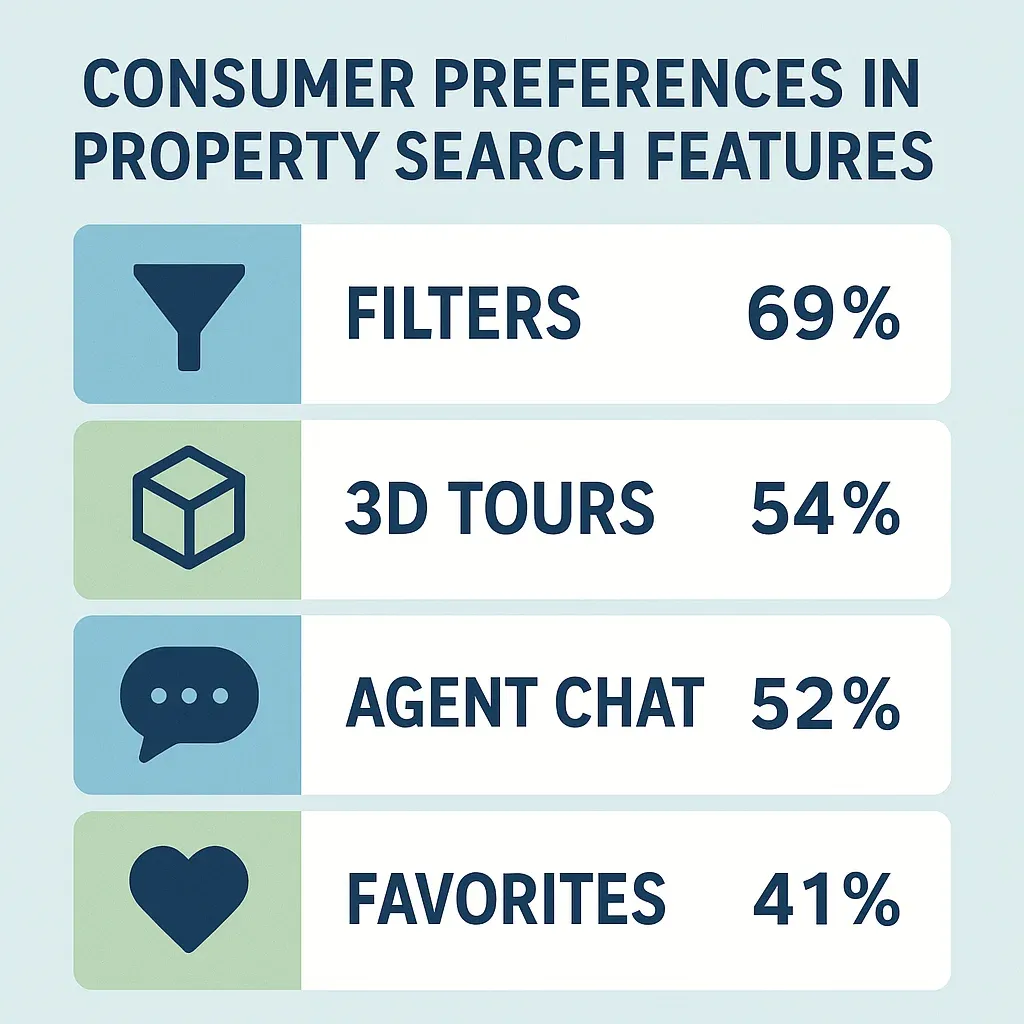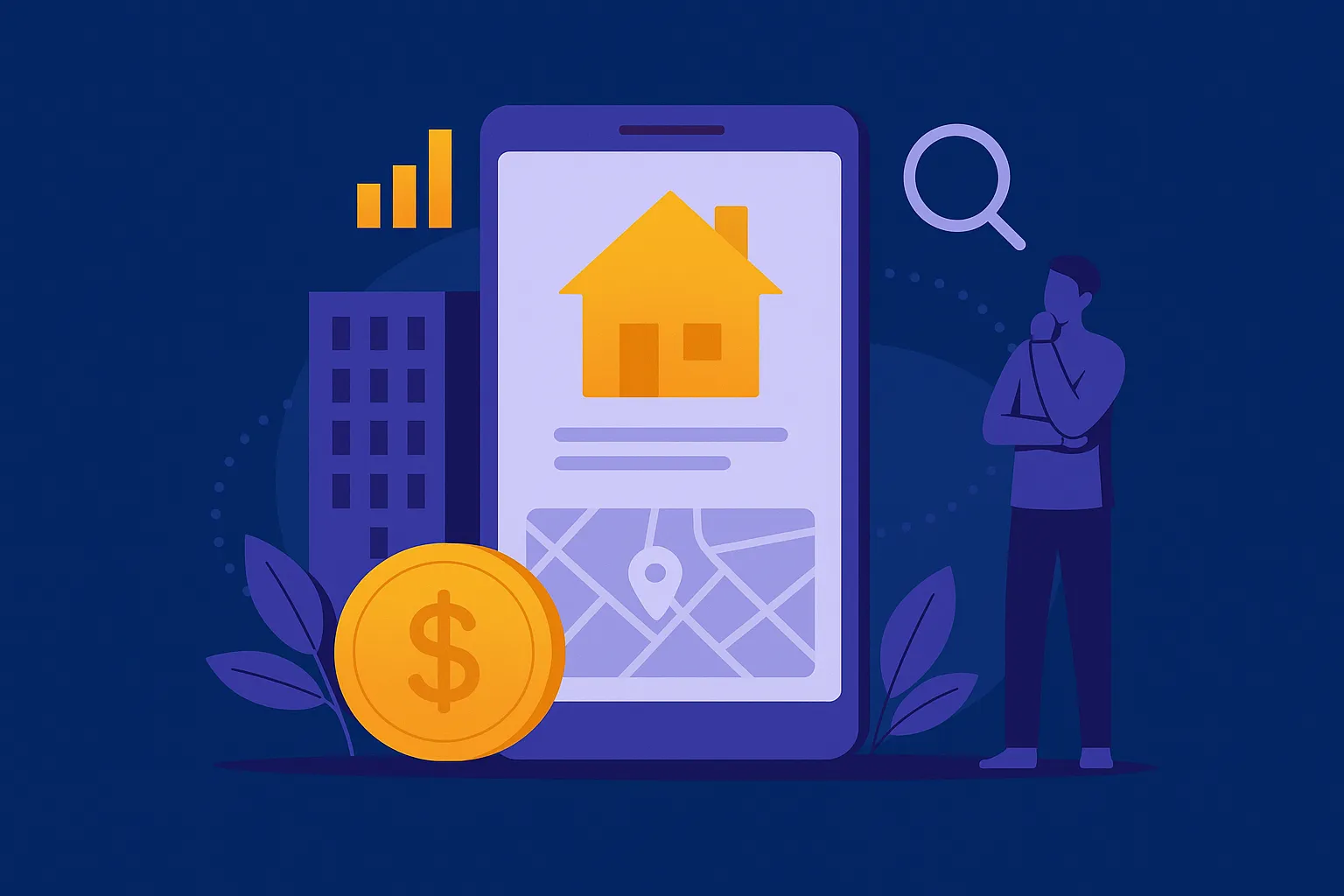The real estate tech boom isn’t slowing down. As we move into 2025, the digital transformation of property buying, selling, and renting is accelerating. Real estate marketplace apps are evolving into essential tools for modern consumers and businesses alike—offering unprecedented access, transparency, and convenience.
In this blog post, we’ll explore why real estate marketplace apps are one of the highest-potential startup categories in 2025. You’ll discover the trends fueling this momentum, the most profitable app models to consider, and how using clone app development can get you to market faster. Whether you’re a startup founder, an agency, or a digital entrepreneur looking for your next big venture, this guide is for you.

Read more: How to Develop a Real Estate App
Why Real Estate Marketplace Apps Are a Hot Opportunity in 2025
The global real estate tech market is expected to hit $40.6 billion by 2025, according to Statista. That’s a massive leap from just $18.6 billion in 2020. What’s driving this surge? A perfect storm of factors:
- Consumer Behavior Shifts: Post-pandemic, buyers and renters want contactless viewings, digital negotiations, and online transactions.
- Funding Trends: According to CB Insights, venture capital investment in proptech startups grew over 40% YOY in 2023, with 2025 looking equally bullish.
- Technology Enablers: AI-powered property matching, 3D virtual tours, and blockchain smart contracts are redefining user experience.
Despite this growth, many gaps remain—especially in emerging markets, niche rental types, and value-added services. Successful platforms like Zillow, Redfin, and NoBroker have paved the way, but local variations and unmet needs create space for new players.

Top Profitable Real Estate Marketplace App Ideas to Launch in 2025
1. Virtual Property Viewing App
An app that offers 360° virtual tours and AI-guided walkthroughs for properties.
Monetization: Subscription from realtors, pay-per-view listing upgrades, ads.
Why It Works: Time-saving for users, especially remote buyers. AI makes discovery more engaging.
2. Rental Marketplace for Digital Nomads
Connects remote workers with short-term furnished rentals globally.
Monetization: Commission on bookings, partnerships with landlords, premium listings.
Why It Works: Rising demand for flexible living options among digital nomads and freelancers.
3. Student Housing Aggregator
Centralized app for college students to find affordable, verified housing near campuses.
Monetization: Listing fees from landlords, subscription plans for institutions.
Why It Works: Universities are scaling back dorms, and students need reliable off-campus options.
4. Commercial Property Listing Platform
Focuses solely on office spaces, warehouses, and co-working listings.
Why It Works: Hybrid work and e-commerce are creating dynamic commercial space demand.
5. Property Flipping & Investment App
Helps users find undervalued properties, assess ROI, and manage flips.
Why It Works: Real estate investors are increasingly tech-savvy and want mobile-first platforms.
6. Co-Living Marketplace
Showcases shared-living homes for young professionals and urban dwellers.
Monetization: Per-bed listing fees, partnerships with co-living operators, featured listings.
Why It Works: Co-living is becoming a lifestyle trend among Gen Z and Millennials.
What Makes an App Profitable in the Real Estate Marketplace Niche?
Here are the common traits of real money-making real estate apps:
- Recurring Revenue Models: Think subscriptions, listing packages, and SaaS-style pricing for agents.
- High Retention Features: Saved searches, smart notifications, and agent chats keep users coming back.
- Low Operational Overhead: Platforms can scale without owning inventory.
- Scalable User Acquisition: SEO-rich listings, social sharing tools, and referral programs help grow user bases organically.
Using a white-label clone solution like those from Miracuves helps founders skip early-stage development chaos and go live with a proven tech foundation. That means fewer bugs, faster launch, and lower dev costs—without sacrificing performance or UX.
Cost to Build a Real Estate Marketplace App in 2025
Here’s what you can expect to spend:
- Basic MVP: $15,000–$30,000
- Mid-Tier Platform: $35,000–$70,000
- Full-Featured App: $80,000–$150,000+
Launch Your Real Estate Marketplace App in Just 3–6 Days — Go Live with Miracuves from $2,500 to $3,000!
Key Cost Factors:
- Number of platforms (iOS, Android, Web)
- Feature complexity (maps, chat, virtual tours, AI)
- Backend infrastructure
- Design and branding customizations
Pro Tip: A ready-made real estate app clone from Miracuves can reduce development time by up to 60% and costs by up to 40%. These are customizable, scalable, and come with post-launch support.
Read more: How Much Does It Cost to Build a Real Estate Listing Platform in 2025?
Tips for Founders to Launch a Successful Real Estate App
- Start with an MVP: Validate demand before scaling. Focus on 1–2 core use cases like rentals or student housing.
- Prioritize UX/UI: Clean search, map navigation, and trust signals (reviews, verifications) are critical.
- Validate the Market Early: Run pre-launch surveys, build waitlists, and engage local agents.
- Plan for Scale: Choose a backend that can handle traffic, data load, and CRM integrations.
- Market Like a Pro: Use hyperlocal SEO, video walkthroughs, influencer campaigns, and agent referrals.
Read more: How to Market a Real Estate App Successfully After Launch
Conclusion
Real estate marketplace apps are shaping up to be one of the most profitable startup categories in 2025. From virtual viewing tools to niche rental platforms, the range of opportunities is both wide and deep. With the global housing market leaning further into tech, now is the time to act.
Whether you’re bootstrapping or backed by VC funds, launching your own real estate app doesn’t have to be overwhelming. With white-label clone solutions from Miracuves, you can cut down development time, reduce risk, and focus on what matters most—building traction and revenue.
At Miracuves, we help innovators launch high-performance app clones that are fast, scalable, and monetization-ready. Ready to turn your idea into reality? Let’s build together.
FAQs
Q:1 How much does it cost to build a real estate marketplace app?
The cost to build a real estate marketplace app with Miracuves ranges from $2,500 to $3,000, with a full Go-Live launch in just 3–6 days.
Q:2 What features should a successful real estate app include?
Key features include advanced search, map view, virtual tours, agent chat, saved searches, and push alerts.
Q:3 Is it better to build from scratch or use a clone solution?
Clone solutions offer faster launch, lower costs, and proven tech—ideal for most startups.
Q:4 Can I customize a clone app from Miracuves?
Yes, all Miracuves clones are white-label and fully customizable to match your brand and workflow.
Q:5 Are these apps scalable for large user bases?
Absolutely. With the right backend setup, clone-based apps can scale to thousands of concurrent users.
Q:6 How do these apps generate recurring revenue?
Via subscriptions, listing fees, lead generation, and premium user features.
Related Articles:








